Understanding the Critical Role of Self-Care in Autism Parenting
Parenting a child with autism presents unique challenges that can often lead to caregiver burnout and stress. Recognizing the importance of self-care is vital not only for maintaining personal health but also for fostering a supportive and resilient family environment. This article explores practical strategies, available resources, and emotional support mechanisms that empower parents to care for themselves while effectively supporting their child's development.
The Importance of Self-Care in Autism Parenting
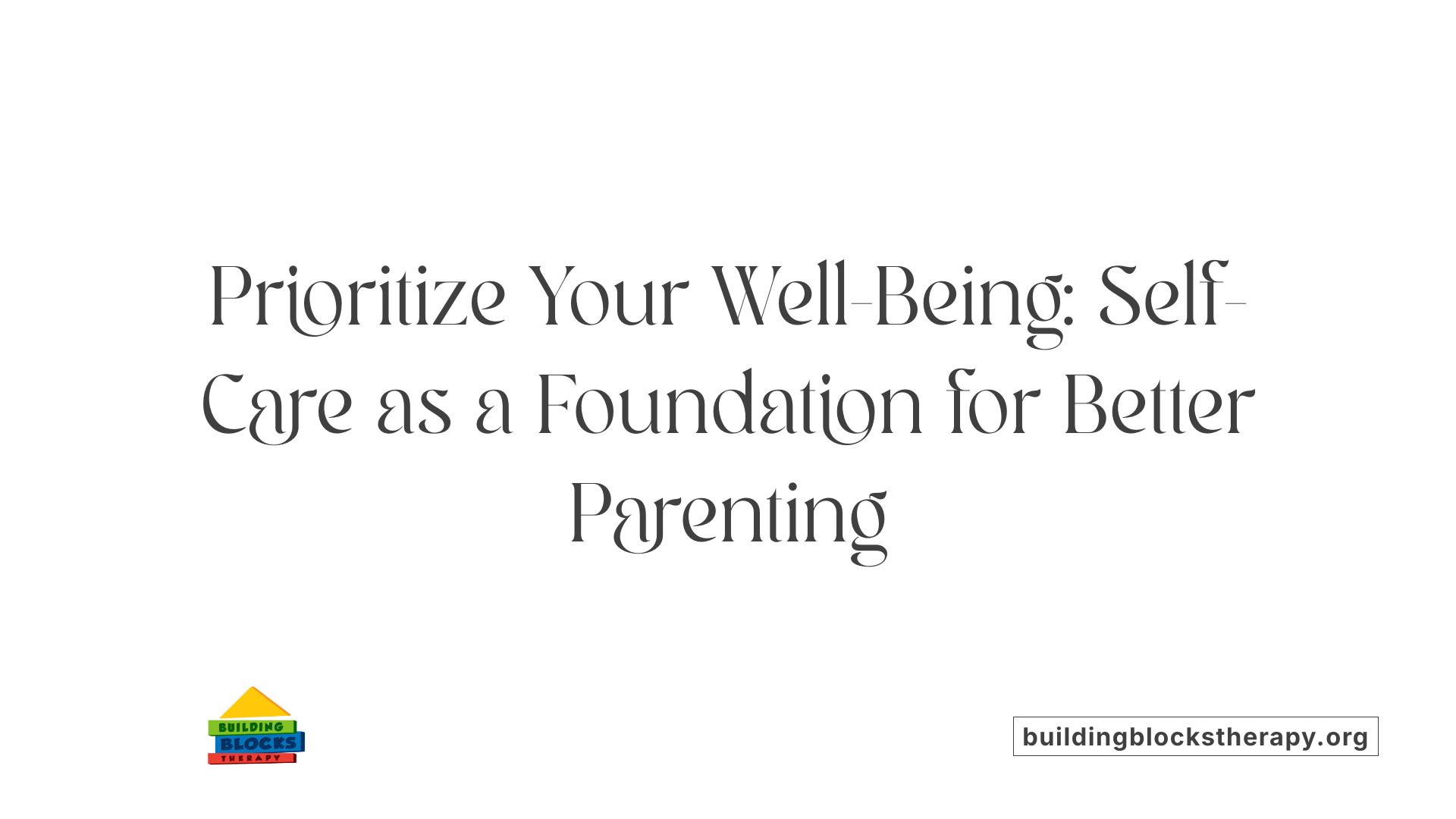
Why is self-care important for parents caring for children with autism?
Self-care is vital for parents of children with autism as it directly supports their emotional, physical, and mental health. These parents often experience heightened stress, fatigue, and feelings of exhaustion due to ongoing caregiving challenges. Engaging in simple, consistent self-care routines—such as short breaks, physical activity, and connecting with loved ones—can help prevent burnout.
Practicing self-care allows parents to manage stress more effectively, reducing risks of anxiety and depression. It also helps sustain their physical health by encouraging restful sleep, good nutrition, and regular exercise. Building a support network and seeking professional help when needed can alleviate feelings of isolation.
By prioritizing their well-being, parents are better equipped to support their child's development and navigate daily challenges with patience and resilience. Importantly, modeling healthy self-care behaviors teaches children important life skills and promotes a more positive family environment.
In essence, self-care is not a luxury but a necessity for parents. It helps maintain their overall well-being, enhances their caregiving capacity, and fosters a supportive, nurturing atmosphere for the entire family.
Practical Self-Care Strategies and Routines
What are practical self-care strategies for parents of children with autism?
Parents caring for children with autism often face high levels of stress and emotional exhaustion, making self-care an essential part of maintaining their well-being. Implementing practical routines and habits can make a significant difference.
One effective approach is establishing daily routines that include moments for relaxation and personal fulfillment. This might mean setting aside time for hobbies, engaging in mindfulness or meditation practices, or simply taking brief breaks during the day to breathe and reset. Even five-minute activities, such as a warm shower, a short walk, or listening to calming music, can alleviate stress and create a sense of calm.
Building a strong support system is equally vital. Connecting with friends, family, or support groups can provide emotional comfort and practical help. Organizations offering respite care, like Autism Speaks, can provide temporary relief, giving caregivers the chance to rest and recharge.
Prioritizing physical and nutritional health is fundamental. Ensuring adequate sleep, maintaining a balanced diet, and incorporating regular exercise can improve mental clarity and physical resilience. Simple strategies like preparing meal plans or batching cooking can help sustain healthy eating habits amid busy schedules.
Setting clear boundaries is crucial for preventing burnout. This involves learning to say no when overwhelmed, scheduling time for oneself, and communicating needs openly with partners or support networks. Celebrating small achievements, such as a successful outing or completing a routine task, can boost morale and foster a positive outlook.
Maintaining open lines of communication with one's partner nurtures the relationship and promotes shared understanding of challenges and successes. Connecting with others who have similar experiences through local or online support groups offers reassurance, advice, and companionship.
By integrating these strategies into daily life, parents can create a sustainable self-care routine that supports their emotional, mental, and physical health, ultimately enabling them to better care for their children.
Supporting Mental Health and Emotional Resilience
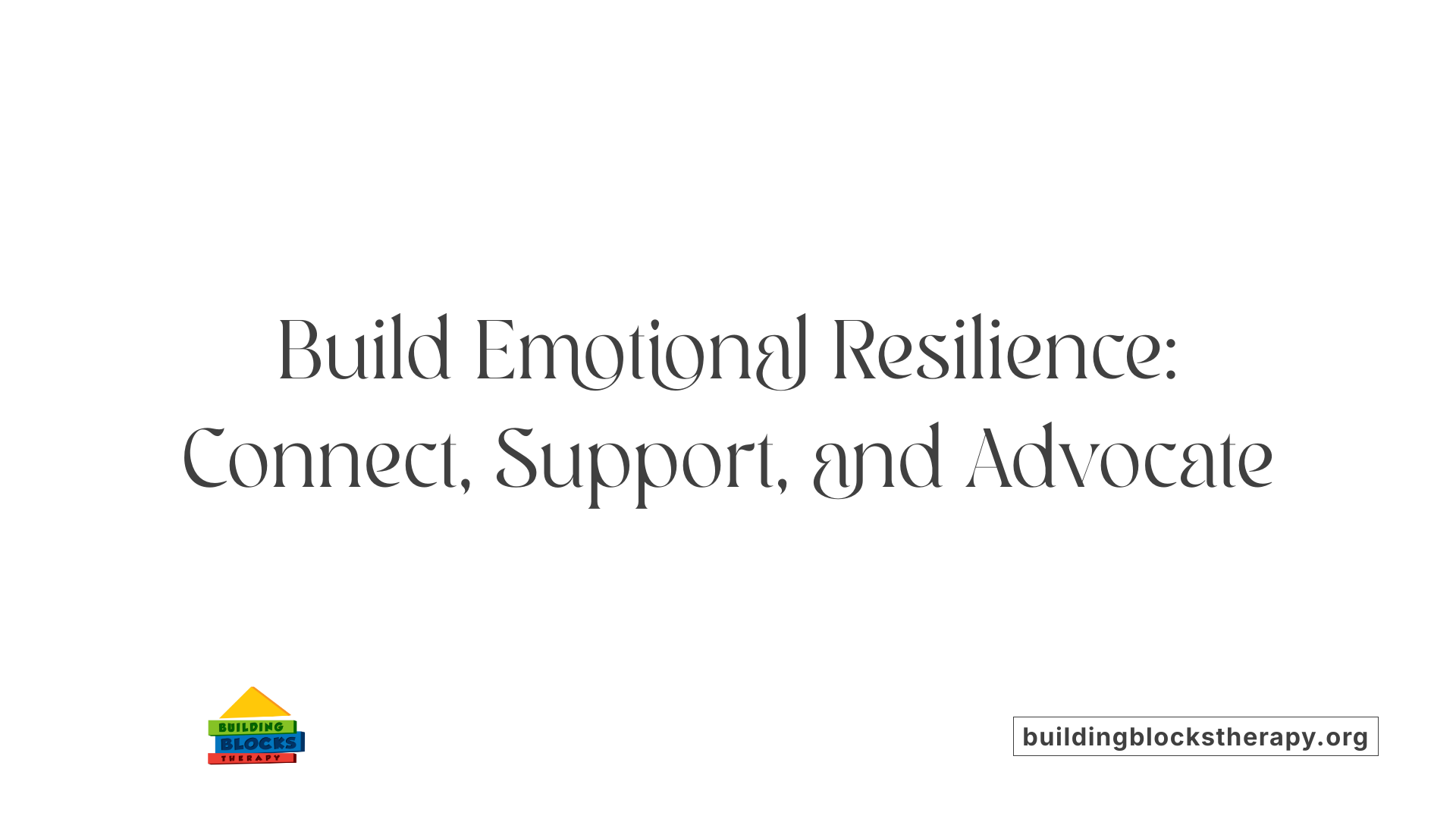
How can parents support their emotional well-being and mental health while caring for an autistic child?
Caring for a child with autism can be both rewarding and challenging, often leading to increased stress and emotional fatigue. To maintain their well-being, parents are encouraged to seek social support through various avenues. Support groups, whether local or online, connect parents with others facing similar experiences, helping to reduce feelings of isolation and share practical coping strategies.
Engaging in mindfulness and coping techniques further bolster emotional resilience. Practices such as meditation, deep breathing exercises, or simple acceptance can help manage anxiety and prevent burnout. Incorporating regular self-care routines, like taking short breaks or engaging in hobbies, supports mental health.
Professional help can play a vital role as well. Counseling or therapy services provide a safe space to process emotions, develop stress management skills, and gain strength. Many employers also offer Employee Assistance Programs (EAPs) or flexible work arrangements that support caregiver needs.
Advocacy and societal understanding are equally important. Raising awareness and challenging stigma through community involvement or advocacy groups empower parents, fostering community support and acceptance. Such collective efforts help reduce societal pressure, making caregiving more manageable.
Overall, a combination of social support, self-care, professional assistance, and societal engagement can significantly improve emotional well-being, allowing parents to better support their children and maintain their health.
| Support Resource Type | Examples | Purpose |
|---|---|---|
| Support Groups | Local parent networks, online forums | Reduce isolation, share experiences |
| Mindfulness Practices | Meditation apps, breathing exercises | Manage stress and anxiety |
| Professional Help | Counseling, therapy | Emotional processing and resilience |
| Advocacy Groups | Autism Speaks, local autism societies | Promote awareness and societal change |
Effective Stress Management Techniques
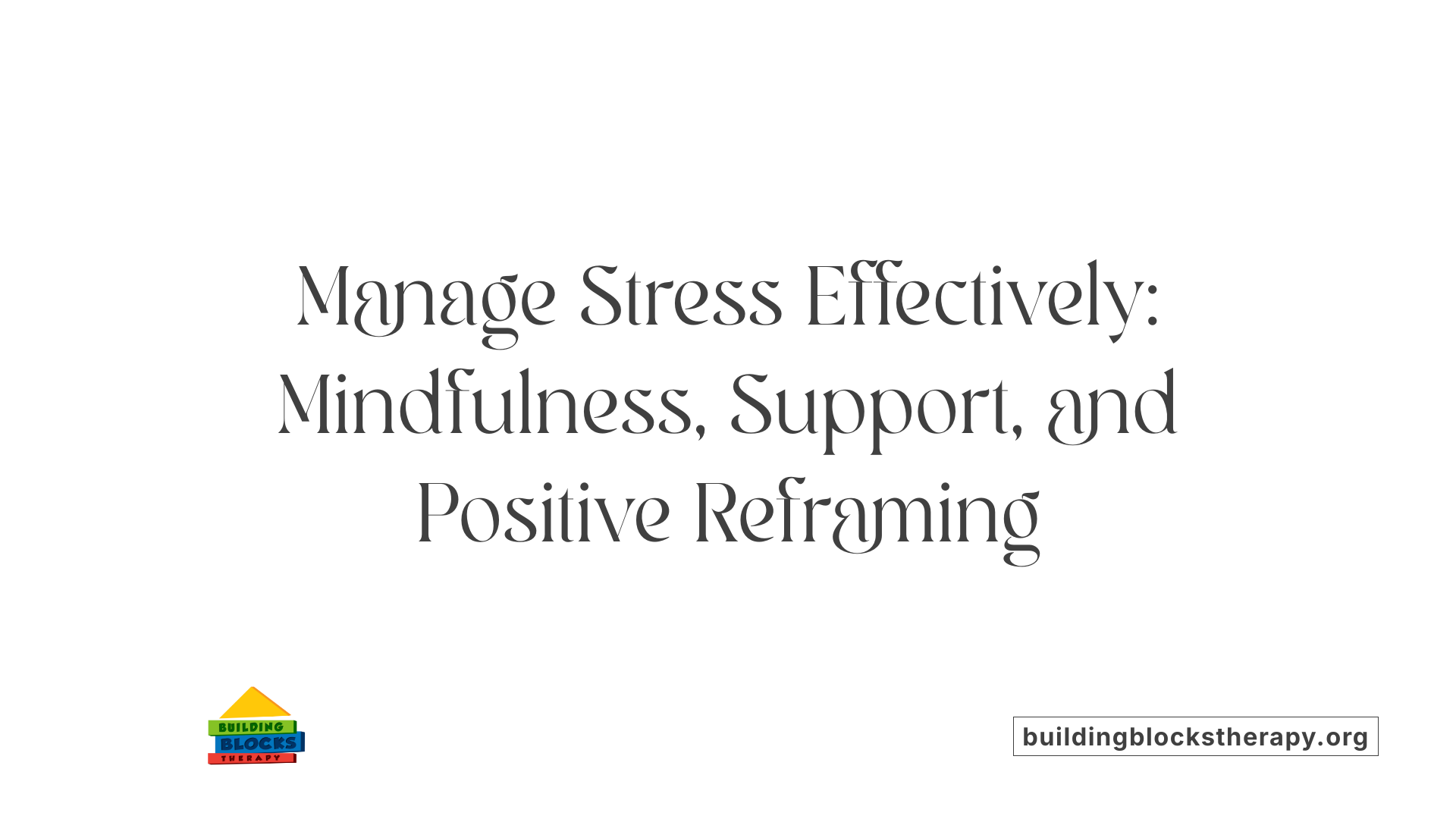
What are effective stress management techniques for parents of children with autism?
Parents caring for children with autism often face high levels of stress that can impact their well-being. To cope effectively, incorporating various techniques is essential.
One impactful method is practicing mindfulness meditation. This involves sitting quietly and focusing on the present moment, which can help calm the mind and reduce anxiety. Deep breathing exercises are another simple yet powerful tool; taking slow, deliberate breaths can lower stress levels quickly and improve emotional resilience.
Building strong social support networks is critical. Connecting regularly with family, friends, support groups, or online communities provides emotional comfort and practical advice. Sharing experiences reduces feelings of isolation and fosters a sense of belonging.
Additionally, learning to reframe negative thoughts into positive or constructive perspectives can change the way parents perceive challenges. For example, viewing behavioral setbacks as opportunities for growth can promote resilience and patience.
Seeking professional help is vital when stress becomes overwhelming. Therapy for parents can aid in managing feelings of helplessness, while working with healthcare providers ensures the child receives appropriate behavioral and medical interventions.
Combining these stress management strategies—mindfulness, social support, positive reframing, and professional assistance—can significantly improve parental well-being. These practices not only reduce stress but also enhance the ability to support their child's development effectively.
| Technique | Description | Additional Benefits |
|---|---|---|
| Mindfulness Meditation | Focused attention on the present moment to foster calmness. | Reduces anxiety; improves emotional regulation. |
| Deep Breathing Exercises | Slow, controlled breaths to calm the nervous system. | Lowers physiological stress response. |
| Social Support Networks | Connecting with trusted people and communities. | Alleviates loneliness; offers practical advice. |
| Reframing Negative Thoughts | Turning worries into actionable or positive views. | Boosts resilience; reduces feelings of helplessness. |
| Professional Support | Therapy, counseling, or healthcare consultations. | Provides coping strategies; improves mental health. |
For parents of children with autism, adopting a combination of these techniques into daily routines can lead to better stress management, improving overall family well-being.
Physical Health and Its Role in Parenting Resilience
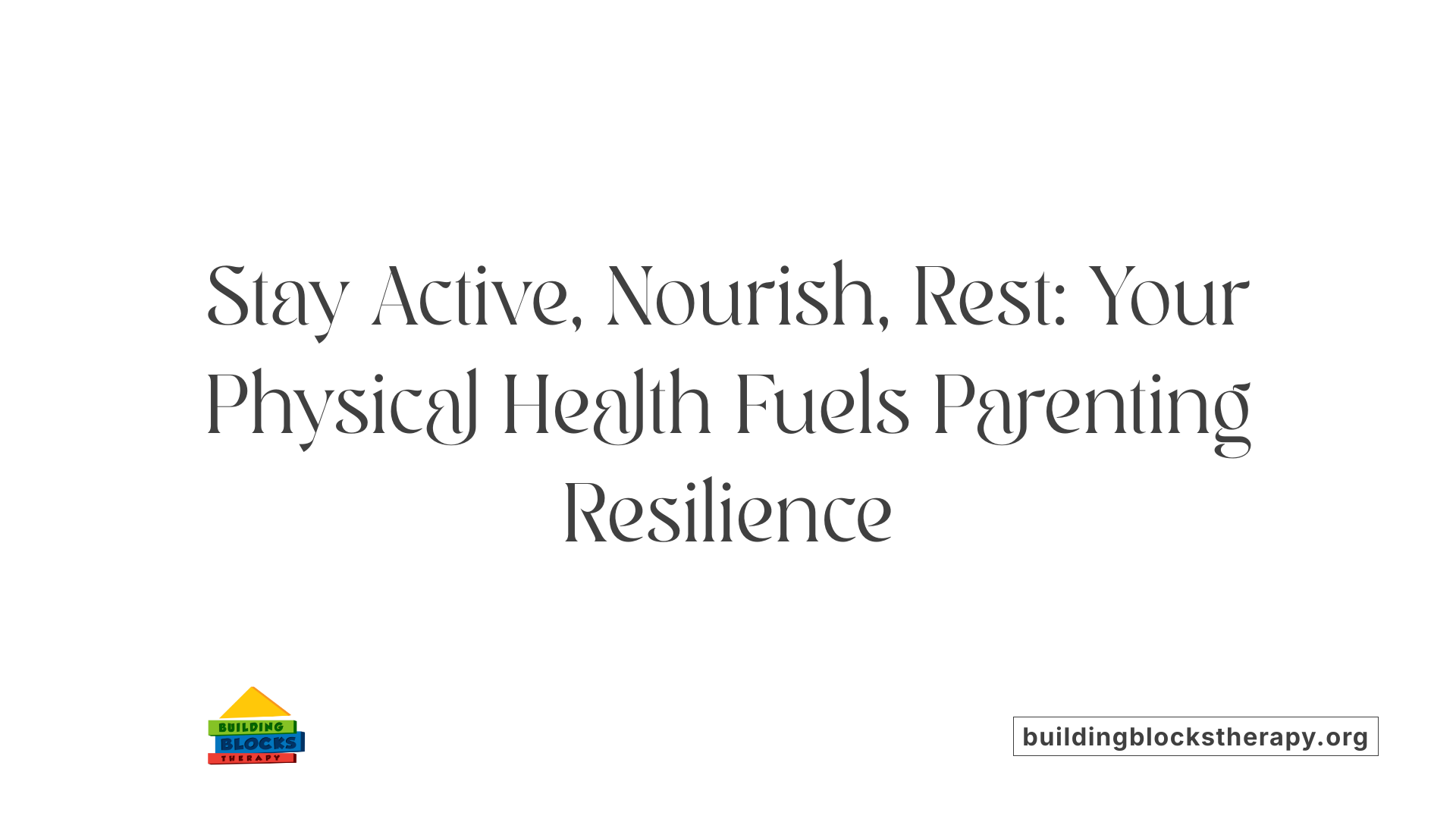
How does maintaining physical health benefit parents caring for children with autism?
Parents caring for children with autism face unique challenges that can lead to significant stress and fatigue. Prioritizing physical health is essential to build resilience and maintain the energy needed for daily caregiving.
Regular exercise and physical activity are vital components. They help manage stress and improve mood by releasing endorphins, which can alleviate feelings of anxiety and burnout. Simple activities like walking, yoga, or even stretching for a few minutes each day can make a noticeable difference.
Healthy eating habits also play a crucial role. Consuming nutritious foods provides the necessary energy and supports overall health, enabling parents to face daily demands with better stamina. Creating a structured meal plan or prepping meals ahead of time can help maintain a balanced diet amidst busy schedules.
Sleep hygiene is another critical aspect. Parents often sacrifice rest, but getting enough quality sleep is fundamental for physical and mental health. Establishing bedtime routines and creating a comfortable sleep environment can improve rest, making daily parenting tasks more manageable.
Furthermore, parents serve as role models when they model healthy behaviors. Demonstrating regular physical activity and balanced nutrition encourages children to adopt similar habits, which can support their development and help ease behavioral challenges.
| Aspect | Practical Tips | Benefits |
|---|---|---|
| Exercise and activity | Short daily walks, yoga, stretching | Reduces stress, boosts energy, models healthy habits |
| Healthy eating | Meal planning, incorporating fruits and vegetables | Sustains energy, improves immune function |
| Sleep hygiene | Consistent sleep routines, comfortable sleep environment | Enhances mood, focus, and physical recovery |
| Modeling behavior | Engage in regular exercise, share healthy meals | Promotes positive habits for children |
Supporting your physical health is not just about self-care; it’s a foundation that enhances your ability to care, connect, and stay resilient. Ultimately, parents who maintain their physical well-being are better positioned to support their children's growth, manage stress effectively, and foster a positive family environment.
Age-Related Challenges and Parenting Approaches
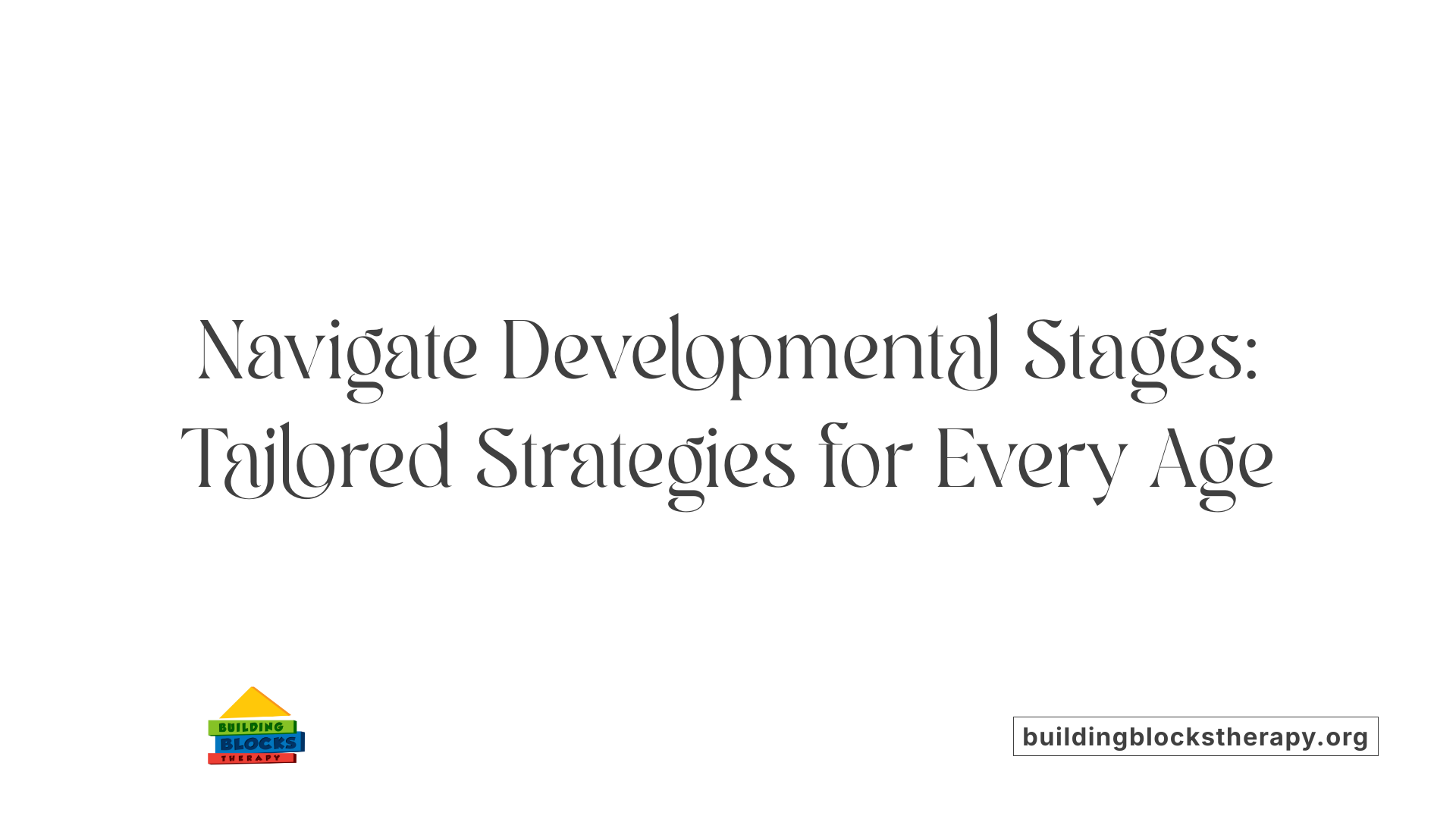
At what age do children with autism typically face the most challenges, and why?
Children with autism often encounter their most difficult periods during early childhood, particularly between ages 2 and 5. During this phase, delays in communication, social engagement, and sensory sensitivities are most apparent, making everyday interactions and developmental milestones challenging.
As children grow into the elementary school years, roughly ages 6 to 12, new hurdles emerge. Academic expectations become more demanding, and children may struggle with social norms and peer relationships, which can lead to behavioral issues. Puberty, usually around ages 10 to 12, can intensify these challenges. Hormonal changes and emotional fluctuations such as mood swings and increased social isolation pose additional hurdles.
Many children with autism experience a developmental plateau around age 6, making this a crucial time for targeted intervention and support. However, the exact difficulty level varies for each child, with some showing ongoing improvements, while others face ongoing challenges. Understanding these age-related hurdles allows parents and caregivers to tailor their strategies effectively, utilizing routines, support networks, and professional guidance to help children navigate these critical developmental stages.
More Information:
| Age Range | Typical Challenges | Parenting Approaches |
|---|---|---|
| 2-5 years (Early Childhood) | Communication delays, sensory sensitivities, social withdrawal | Consistent routines, early intervention services, patience |
| 6-12 years (School Age) | Academic stress, social skills, behavioral issues | School support, social skills training, behavioral strategies |
| 10-12 years (Puberty) | Emotional regulation, body changes, social isolation | Open communication, emotional support, peer connections |
Focusing on these developmental phases helps parents create age-appropriate strategies that foster resilience and support for children with autism.
Empowering Parents Through Self-Care and Support
Ensuring caregivers prioritize their self-care is essential for their well-being and their capacity to nurture their children effectively. Utilizing available resources, engaging in consistent routines, and building support networks create a foundation for resilience. Recognizing that self-care is not a luxury but a necessary component of sustainable caregiving empowers parents to maintain their health, reduce stress, and foster a positive environment for their family. When parents care for themselves, they set a powerful example, cultivate patience, and bolster their ability to navigate the unique challenges of raising a child with autism.
References
- Taking Care of Yourself | Autism Speaks
- Caregiver Burnout: Why Self-Care Is Essential to Parenting
- Parents and Caregivers: The Importance of Self-Care
- Pivoting: Balancing Self-Care While Caring for Your Autistic Child
- Self-Care for Parents of Children with Autism
- Autism Mom's Self Care: 6 Quick Ways To Reduce Stress and Gain ...
- Self-care for parents of children with autism: Avoiding burnout






